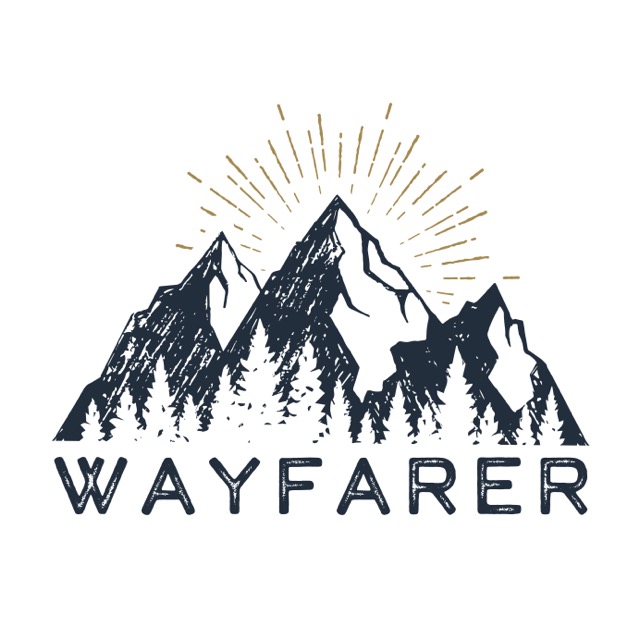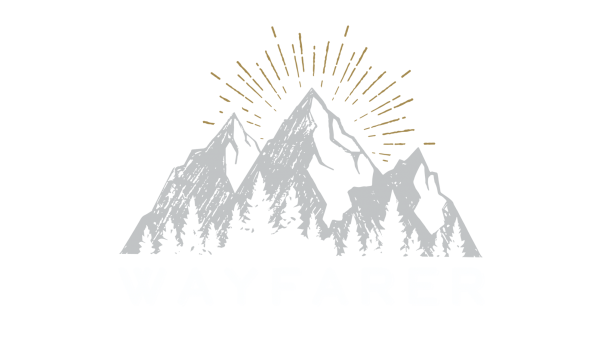Featured in Vol.4 Issue 1 | The Spring 2015 Edition
Last summer I sat on top of Hurricane Point overlooking Silver Lake in central New Hampshire. Wind sounded through scant trees on the steep little hill mingled with the hum of a distant motorboat, then two of them. Their wake slapped against the shore at the foot of the hill. I heard its splash again and again until it went silent. Someplace deep in memory I heard the sound of wind on the prairie, how different it was from the wind here among trees and over water.
For every one of us there is a story to our listening. It started in some particular place, then traveled and evolved from that place and time to now. If we listen for it, we can hear the story of our own listening, and each of our stories differs from all others. Consider right now as you read this where your story began.
A storm seemed to be gathering over Silver Lake. I noticed the darkening air and the smell of rain. For a while the wind stopped, no boats passed by, yet my ears and my entire body kept listening. I thought to myself, does it ever stop? I’ve heard that hearing is the last sense to go when someone is dying. Maybe our listening keeps on going as near to the end as it can get, right out to the edge of breath. Maybe it dares to approach anything, any edge, any precipice. When places inside me get frightened, or happy, or sad at what I hear, listening goes on through it all, a vehicle for travel all around me and inside me.
As I look back over my life, all the way to its beginning, I recognize that my listening was taking its earliest shape by what surrounded me in that place of prairie, its many voices of wind from quiet breeze to fierce gust, the voices of all the creatures that lived there and became my first guides. As a boy walking the pastures this is what I heard:
Night Hawk’s Path
It happened the first time
on the dirt cow path
when I walked
behind the milk cow,
evening chore-time light
gliding across Shadwell creek
now shadowed for the night.
When I stood still,
that hum
no one ever talked about, coming
from the earth, moved
up my legs
into my hips, turning
this body into sound.
Light flared yellow,
gathered around haystacks,
fenceposts,
the cow and me.
Writing that poem opened my listening to the prairie again. Remembering earth’s hum coming into my body as these lines came to me became its own kind of listening, bringing this hum back to me a second time as a gift.
The particular place on this planet that, for each of us, first shaped our listening stands amidst this larger place we inhabit together called cosmos by the ancients. Not only our planet earth, but all the rest of the solar system, our galaxy, and everything beyond, whatever that is, both what we know and what we don’t know of it surrounds us, touches us on every side, shapes us and our listening in uncountable ways. Everything out there is coming at us, and everything out there offers its signal whether or not we have a name for it. I am compelled to imagine that a larger “hum” than even that of planet earth alone comes toward us always and in each moment.
Reflecting on my experiences on the prairie, where things and people came to me in tactile and visceral ways, I like to think that listening is close to touch in its essential nature. It invites into us whatever presses itself toward us on whatever organ of reception we offer. It can be our ears we offer to the words someone speaks, so we hear their story. It can be the heart we offer to the outpouring of another’s grief as we hear of their loss. It can be the hand we offer to someone’s reach for help, our mind that receives the imprint of another’s idea, or the entire body that receives the invitation of a lover.
Though we think of listening most often as the experience of sound landing in our auditory capacity to hear, at its essence listening is receptivity, and we receive in many ways. That the hearing-impaired find other vehicles for listening than the auditory system testifies to this.
***
Listening happens in the call and response between those who participate in it and co-create it. A third “something” emerges when listening blossoms, and it carries the one calling and the one responding along a path they travel, trading call and response back and forth. When it ignites and is most alive, it is a kind of fire, its flames reaching for anything that offers something to be heard, and everything offers something.
There is nothing to do. Listening is the most natural response we offer to whatever being or creature in the cosmos calls to us in its way. The rattlesnake calls with its rattles ripping through the silence around its long body coiled in the bush when we walk past. We respond with our startle, our fear, our moving out of harm’s way. The river calls to us with its murmur. We respond with our ears taking it in, and with our being moved by its gentle yet fervent whisper along its banks. Another person calls to us with her request for the salt shaker, for a helping hand, for an ear to hear her story. We respond with our ears, our hands, bellies and hearts, our touch and our willingness to be touched.
***
When our listening truly opens, it will almost surely carry us to something we don’t yet know. Believing we know what’s coming, we are less open. If we embrace not knowing, we might become aware of a silence inside, an absence of preconceptions. Not “listening for” what we already think we know, we might come into a stillness where we experience what Heraclitus, the ancient Greek philosopher, urges us toward when he says, “If you don’t expect the unexpected, you won’t find it.”
***
But what about the times when our listening fails? When we fail to hear another, or we turn away from what the other is saying, what is happening then? What is missing? And what about all this time when we hear the news of our planet being destroyed by our consuming habits? How can we truly be listening yet still cascading toward environmental devastation? If it is so natural and easily opened to what is around us, how come it seems to close or be distorted at times?
I venture this. Our listening gets shaped in ways that constrain it, that warp it around a particular belief, an expectation, an agenda, or an old wounded place inside. When this happens listening becomes protective. It closes at the places where some part of us is trying to steer away from an unwanted feeling or thought. This happens both on an individual and a collective level. Our culture, our patriotism, our religious or scientific orientation, political persuasion, personal agendas, historical traumas, all of these shape and constrain our listening. We see this in the strife of the world today, in the war torn Middle East or Ukraine, in the fight for environmental sanity, anyplace where intense and polarized activity erupts in the absence of open and responsive listening.
***
It can be more subtle than these examples. Even our agenda to help someone can constrain our listening, turn it into an instrument we are trying to wield rather than an open vessel ready to receive another’s call. I practice psychotherapy and at times my desire to help my clients does affect how I listen. When I take myself to be an instrument of healing, I’m less a healer. I’ve learned that if there is anything to do to enhance my listening, it is to listen with compassion and curiosity to those very places where I am vulnerable and protective and where some door might be ready to open.
In this Body
There are rooms
that close their doors.
Years pass
and a breeze moves through.
Maybe it was the look of that man
with red hair and heavy hands,
or the woman crossing the street
with the soft fingers
and far away stare.
A door blows open slightly,
the hinges barely agree.
Behind that door
there’s a small child
who wants you
to call him by name.
In my work as a psychotherapist my first task as I enter into relationships with clients is to listen ongoingly to my own listening. My next task is to guide clients toward listening to theirs, to help them discover where it might be blocked yet ready to open, ready to receive the call from a scared or lonely part of them who wants to know that someone is there, finally, and listening.
I try to remember as I sit down to each session that I could approach it as I would a poem I’ve not heard before, and that I want to hear the poem in its own terms, to be open to its voice and what it might reveal to me. When my listening as therapist opens in this way, I feel myself leaning in more, noticing subtle changes in the tone, the gaze, the posture; tracking this person’s story as it unfolds through voice and body. A deepening curiosity guides me toward what is ready to show itself.
When a client responds to the invitation, there is and there is not a therapist and a client. While I might be the guide at times, what really happens is two people listen to each other, bear witness each to the other. It is a profound event when it happens, and the two of us do not leave the same as we entered. Something has called us toward that boundary where our knowing borders our not knowing, opens us to the unexpected in the face of which we are likely to feel vulnerable, excited or both. If we keep listening there, places in us begin to appear that haven’t been heard maybe ever, and what they reveal guides us further along the way. This is also where, if ever we do, we’re likely to receive some kind of guidance from sources for which we don’t have names, at least not yet.
This applies beyond the psychotherapy dialogue, to countries at peace or at war, to parents and children, to relationships of all kinds, and to all of us together in our struggle to save our natural environment. Let us listen to each other as well as to what the river says, what the tree says, the sky and the field, all of it.
In any dialogue witnessing grows out of this listening to our listening. This might be the most profound agent of change we have as humans who speak, who grieve, who weep and laugh, who offer to travel with another to yet unknown places. A few lines of a poem from Rumi speak to this:
“Talking can be sweet. A field can bloom in your
Eyes when sharing words with the right person. …
Find some ears that love the touch of your
Sounds, and you theirs.”
This is what we have to offer one another, nothing more and nothing less. Our authentic and open listening reveals more of who we essentially are, each of us to ourselves and to one another. It is a profound offering, it is fierce and it asks everything of us.
—Gary Whited
January 2015

